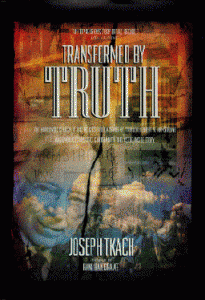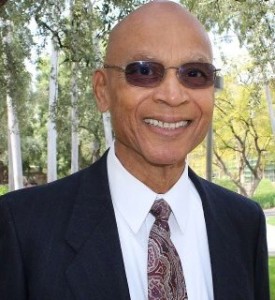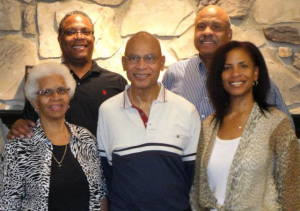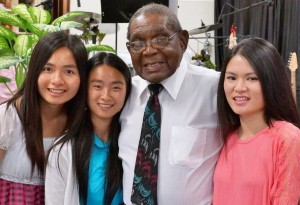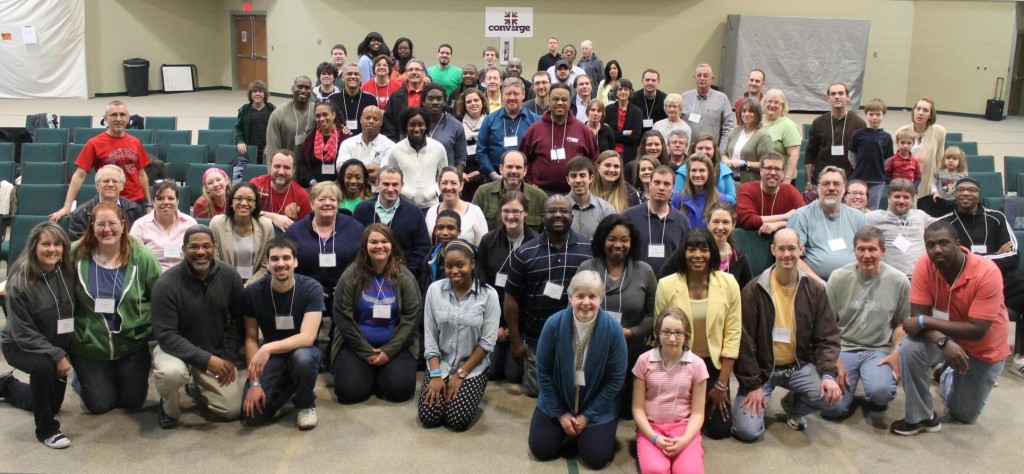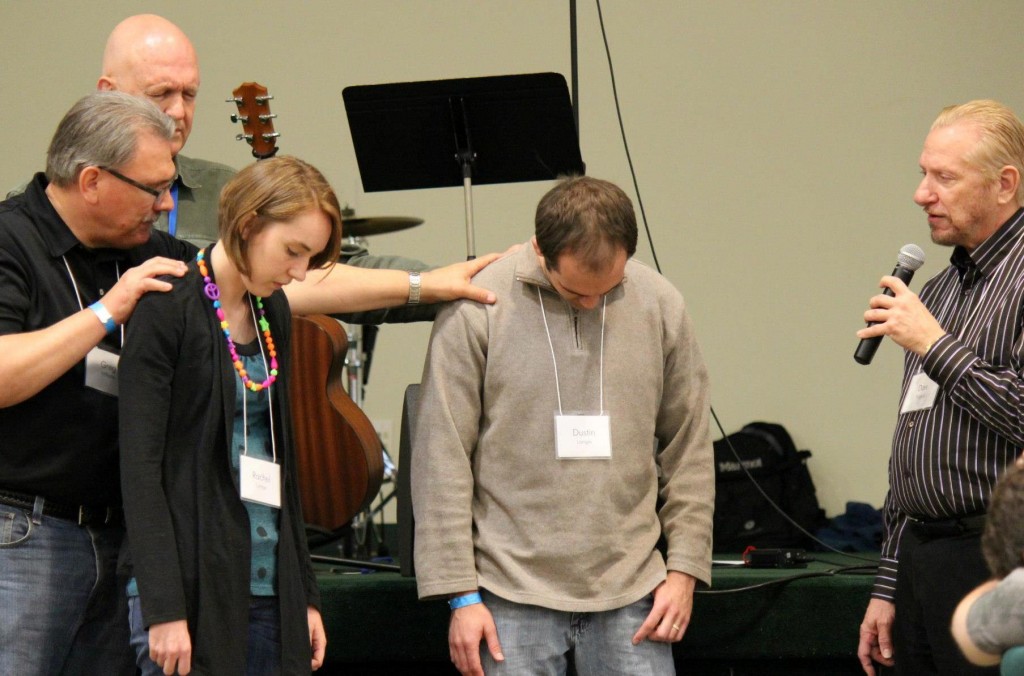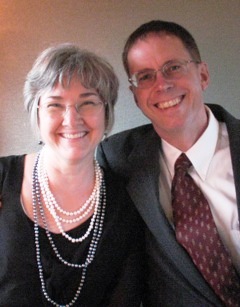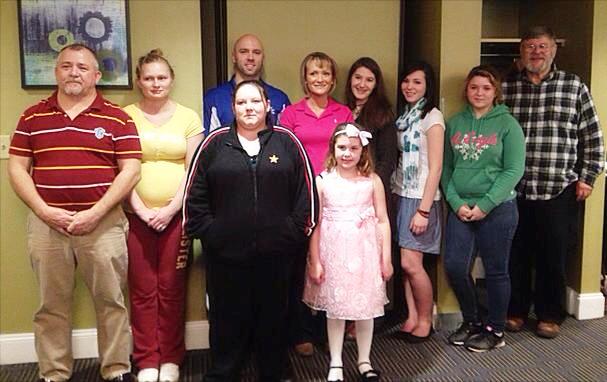This article is part two of a six-part series by Gary Deddo on interpreting Scripture. Click here for part one.
In the first article in this series, we considered how Scripture is a gift of the living and speaking God. But this gift is not one that becomes separated from the giver. By the Spirit God spoke through the prophets and then the apostles. But God continues to speak by the same Spirit through those God-breathed written words. In fact if God fell mute, and ceased to actively communicate to us in and through those written words, we would not have a true and authoritative word from God by which he makes himself known. But the living and speaking God of the Bible does not remain at a deistic distance, winding up his Bible and then sending it out to mechanistically convey information about God.
The very nature of God is to communicate himself, making himself known, so that we might communicate with him as his children and so share in holy loving communion.
One further point, made in part one of this series, confirms all this. God’s personal act of communication is in and through his Son, the Living Word. The whole of the written words of the prophets and apostles direct our attention to the Living Word, Jesus the incarnate Son of God. This Jesus is God’s own self-communication, his own self-revelation to us. Jesus does not give us words from God, he is himself God’s Word to us. He expresses the very character of God as a speaking and communicating God. To hear Jesus is to hear God himself speaking to us, directly, in person, face-to-face.
So Jesus is at the center of the written word, Scripture. But he is behind all the words, the whole of the Bible, as its source, as the speech of God to us. He is the original Word and the final Word of God, the Alpha and Omega. In other words, by the incarnation of the Word of God the author of the written word of God has come into the play, he has shown up in the person of Jesus. And as the author, Jesus himself indicates that he is at the center and behind it all. So when the Pharisees attempt to use Scripture (and their interpretation of it against Jesus), he confronts them and says: “You search the scriptures because you think that in them you have eternal life and it is they that testify on my behalf. Yet you refuse to come to me to have life” (John 5:39-40, NRSV throughout). Jesus has to tell them that he is the author [Lord] of the Sabbath (Luke 6:5) and that they are in no place to judge him by their pre-understanding of the Sabbath. When the author of Scripture shows up, we have to stop interpreting Jesus in terms of our pre-understandings of Scripture and interpret the written words in terms of Jesus, the Living Word.
Through his interaction with the men on the road to Emmaus after his resurrection, Jesus instructs us how to approach the written word of God. To help these disciples understand who he was and what he had gone through, this is what he did: “Then beginning with Moses and all the prophets, he interpreted to them the things about himself in all the scriptures” (Luke 24:27). A bit later he explained to them: “’These are my words that I spoke to you while I was still with you—that everything written about me in the law of Moses, the prophets, and the psalms must be fulfilled.’ Then he opened their minds to understand the scriptures” (Luke 24:44-45).
The written word of God is to be interpreted in the light of the Living Word, for the purpose of the written word is to direct us to the Living Word so that we might know who God is and what he has done for us. When we approach all of Scripture with Jesus himself as the interpretive key to it all, then we hear the word of God as it was meant to be heard. Thomas F. Torrance used to explain it this way: It’s like reading a murder-mystery for the second time. The first time we’re looking for clues as to “who-done-it.” But not everything is clear. Some things make sense others don’t. Some things seem significant, others seem trivial. But in a well-crafted murder mystery there will be plenty of clues—so many clues that when it finally is revealed who committed the crime, we are somewhat surprised but also satisfied that it makes sense. We say, “Yes there were clues all along. We just didn’t know which ones to pay attention to and didn’t see how they ‘added up.'”
Now, what would happen if we were to read the murder mystery for a second time? Now knowing “who-done-it,” those early clues would not be irrelevant. Rather we would see how truly significant they were. We would be able to sort out the irrelevant clues from the meaningful ones. Those clues would stand out as even more extraordinary. “No wonder suspect A said X. No wonder suspect B did Y.” We would see what they mean; how they point to who committed the crime. We would end up valuing those clues as foreshadowings even more than on the first reading.
And that’s much what it’s like when properly reading the Bible. Knowing it all leads to what God has done in Jesus Christ, we don’t set that recognition aside. Rather we interpret the whole of the written word in terms of its center, the Living Word of God. In that way, the whole of Scripture is properly interpreted; the gift of God is properly received.
Another way to say all this is that the Bible itself tells us whose Scripture this is. We know who the author is. We know where the Bible came from. It is not anonymous. So another analogy would be that reading the Bible is like reading a letter from someone you know and who knows you, not like getting junk mail from someone you don’t know and who doesn’t know or care about you. Reading these two types of mail are entirely different experiences, aren’t they? Sometimes when I’ve gotten letters (or emails) from those I know well, as I read what they wrote, I can almost hear their voices. I know just how they’d say it. It sounds “just like them.” Reading the Bible should be like that. The more we get to know the heart, mind, purpose and attitudes of Jesus, the more we’ll hear his voice throughout all of Scripture and see how it points to him the Son, and to his mission as the self-revelation of the Father and the Spirit.
When reading and trying to understand Scripture out of the center of knowing whose scripture it is, another aspect of a proper approach becomes apparent. The primary purpose of all of Scripture is to reveal to us who this God is. That is, central to the message of all the biblical writers is to convey to us the nature, character, purpose and attitudes of our Creator and Redeemer God. They want us above all to know not just that some kind of god exists, but which God in particular and what this God is like. And they want their hearers to know who God is because the God they know wants to be known and is working though them to accomplish just that.
But the revelation that God is accomplishing is not just aimed at a kind of abstract, impersonal information. It is knowledge that reveals a God who has created us for relationship, communication and holy love. Knowing this God involves interaction of faith, trust, praise, adoration, worship and so fellowship and communion, which includes our following in his ways; that is, our obedience. And this interaction is not just a “knowing about” but a knowing in a sense similar to how we hear of Adam “knowing” Eve and so conceiving a child. By God’s acts of revelation, we come to know deeply who this God really is. Love for this God, the worship of this God, trust or faith in this God are our responses to who this God is. True knowledge of God that is accurate and faithful leads to true worship and living trust in God.
Throughout the Old Testament, the most often and widely repeated description of God’s nature and character is his “steadfast love.” In the Psalms alone, the Lord’s steadfast love is highlighted nearly 120 times. Psalm 136 uniquely proclaims God’s steadfast love in the refrain of all its 26 verses. An expanded but slightly more comprehensive description found across the Old Testament echoes what the Lord revealed of himself to Moses: “The LORD, the LORD, a God merciful and gracious, slow to anger, and abounding in steadfast love and faithfulness.” The Old Testament prophets constantly held out to their hearers the nature and character of God, the only one worthy of their faithfulness and worship. However, the fullness of what God’s steadfast love means does not come into full view until we see it embodied and lived out in the incarnation, life, death, resurrection and ascension of Jesus with his promise to return.
Jesus himself made inquiring about and knowing who he was of paramount importance. His teachings and actions are designed to raise the question: “Who then is this?” His parables prompted his hearers to inquire more deeply. And of course, Jesus even confronts his own disciples with this question at two levels: “Who do people say that I am?” and then even more pointedly “Who do you say that I am?” (Mark 8:27, 29 ). Jesus himself makes the question of Who central. We must do the same if we are to hear the Word of God (Living and so written) as it was meant to be heard.
What is disclosed in Jesus and preserved for us in the responses of the apostles and their writings is that God is not just graciously loving towards us, but is Father, Son and Holy Spirit who have their being in triune holy loving from all eternity, before there ever was a creation. Jesus is who he is in his eternal relationship of holy love to the Father and eternal Spirit. That is the deepest level of God’s self-revelation, where we discover who God is in God’s inner and eternal triune life.
So we should approach our Bible study with our primary goal being listening and learning from Scripture who our triune God is as revealed to us in Jesus Christ. We can then rightly interpret Scripture out of that center. This approach means that other questions we might like to ask first, or about which we might be anxious, will be secondary. For Scripture, with Jesus at the center, not only provides us with certain answers, it tells us what the right questions are! So the questions of What?, Where?, When?, Why? or How? must be made relative to the question of Who? For it is the key to all these other questions.
We now have laid out the basic orientation for our understanding of Scripture and how best to approach it. We will consider some further implications for listening to the Word of God in our next installment.
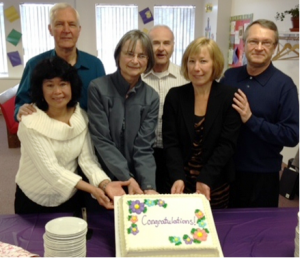 Recently I had the privilege of attending services in the Surrey, Vancouver, British Columbia church. It was a special day with Jerry Lucky and Johannes Breytenbach ordained as elders, and Louise Jeansonne and Dan Holiove commissioned as deaconess/deacon (called “ministry leaders” in the US). These individuals with spouses are pictured here, from left to right: Juliette Breytenbach, Johannes Breytenbach, Louise Jeansonne, Dan Holiove, Sue Lucky and Jerry Lucky. They will add to the committed group of existing leaders in the congregation and provide a great team working with pastor Craig Minke as they lead the church into greater participation in the mission of Jesus Christ to the world.
Recently I had the privilege of attending services in the Surrey, Vancouver, British Columbia church. It was a special day with Jerry Lucky and Johannes Breytenbach ordained as elders, and Louise Jeansonne and Dan Holiove commissioned as deaconess/deacon (called “ministry leaders” in the US). These individuals with spouses are pictured here, from left to right: Juliette Breytenbach, Johannes Breytenbach, Louise Jeansonne, Dan Holiove, Sue Lucky and Jerry Lucky. They will add to the committed group of existing leaders in the congregation and provide a great team working with pastor Craig Minke as they lead the church into greater participation in the mission of Jesus Christ to the world. Accompanied by Dawie Maree, I returned mid-week from my travels up into Mozambique. Even though the roads are long and in poor condition and living conditions extremely basic, I somehow return rejuvenated after seeing the joy that these people have from embracing Christ. My words are inadequate for describing the experience, and I wish you could all come along so that you could see and feel it for yourselves, as 11 Polokwane members did this year, hiring a taxi and spending two days of the conference with our Mozambique brothers and sisters. This year there were about 750 people in attendance at our headquarters in Morrumbala. The Easter conference is for our Mozambique pastors (about 100 in total) but others just arrive, drawn by a thirst for knowledge of him and fellowship.
Accompanied by Dawie Maree, I returned mid-week from my travels up into Mozambique. Even though the roads are long and in poor condition and living conditions extremely basic, I somehow return rejuvenated after seeing the joy that these people have from embracing Christ. My words are inadequate for describing the experience, and I wish you could all come along so that you could see and feel it for yourselves, as 11 Polokwane members did this year, hiring a taxi and spending two days of the conference with our Mozambique brothers and sisters. This year there were about 750 people in attendance at our headquarters in Morrumbala. The Easter conference is for our Mozambique pastors (about 100 in total) but others just arrive, drawn by a thirst for knowledge of him and fellowship.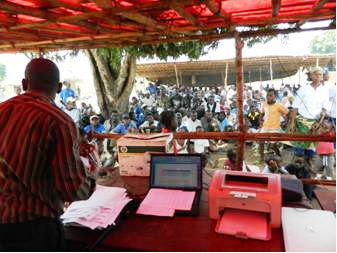 It is a surreal feeling, being surrounded by mud and grass huts, no plumbed water or electricity (though they had managed to hire a diesel powered generator), eating basic food cooked over open fires, yet having access to vast online resources due to mobile internet. I was immediately able to go online, search our international GCI website for relevant articles, translate them into Portuguese (using Google translate), print them on a small laser-jet printer we had purchased for them (which is usually operated by a battery and power inverter fed from a solar panel, also bought by GCI South Africa) and distribute them to all the pastors to study further. What a privilege it is to participate where the Holy Spirit is working!
It is a surreal feeling, being surrounded by mud and grass huts, no plumbed water or electricity (though they had managed to hire a diesel powered generator), eating basic food cooked over open fires, yet having access to vast online resources due to mobile internet. I was immediately able to go online, search our international GCI website for relevant articles, translate them into Portuguese (using Google translate), print them on a small laser-jet printer we had purchased for them (which is usually operated by a battery and power inverter fed from a solar panel, also bought by GCI South Africa) and distribute them to all the pastors to study further. What a privilege it is to participate where the Holy Spirit is working!


